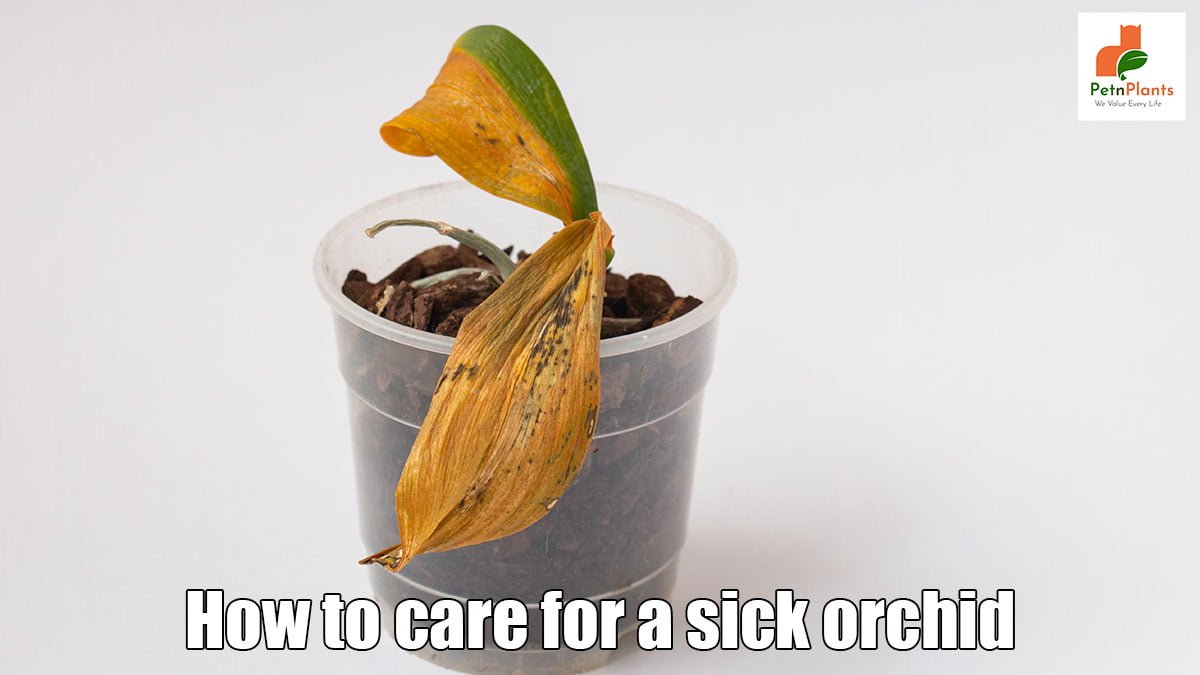Latest
Pets
Plants
How Indoor Plants Can Affect Pet Behavior, Stress & HealthJanuary 12, 2026
We Value Every Life

Have you recently been gifted an orchid or have decided to take on the challenge of caring for one? Orchids are one of the most beautiful and delicate flowers in existence. They’re also notoriously difficult to care for, so many people give up on them after a short while. We’ll explore everything you need about orchid, especially sick orchid care, from watering to fertilizing and repotting. By the end of this post, you’ll be an expert in all things orchids and will be able to keep your plant healthy and blooming for years to come.
If your orchid is sick, the first thing you should do is identify the problem. Is the plant wilting? Are the leaves yellowing? Is there a fungus or mold growing on the roots? Once you know what the problem is, you can take steps to treat it.
If your orchid is wilting, it may be because it’s not getting enough water. Check the soil to see if it’s dry and water accordingly. If the leaves are yellowing, it could be because of too much sun exposure. Move your plant to a shadier spot. If a fungus or mold grows on the roots, you must repot the plant in a fresh potting mix.
If you think your orchid is sick, the first step is to look closely at the plant. Check for any signs of stress, such as wilting leaves or flowers, discoloration, or spots. If you see any of these symptoms, it’s important to act quickly to try to save the plant.
The most common cause of illness in orchids is poor watering habits. Orchids need to be watered regularly, but they don’t like to be waterlogged. Check the soil before watering, and only water when the soil is dry to the touch. It’s also important to use filtered or distilled water, as tap water can contain chemicals that can harm your orchid.
Overwatering is not the only way to kill an orchid – too much sun can also be detrimental. Orchids prefer bright indirect light, so if yours is sitting on a sunny windowsill, it may be time to move it. The leaves should be a deep green color – if they start to turn yellow, that’s a sign that the plant is getting too much sun.
Poor drainage can also lead to problems for your orchid. Be sure the pot has good drainage holes and that you use a well-draining potting mix. If you’re unsure whether your potting mix is well-draining, you can always add some extra perlite or bark chips to help drainage.
Orchids are delicate and beautiful flowers but can be quite finicky regarding care. If you find yourself with a sick orchid, don’t despair! With extra care, you can nurse your plant back to health in no time. Following the tips in this article, you’ll have your orchid blooming again before you know it.
0